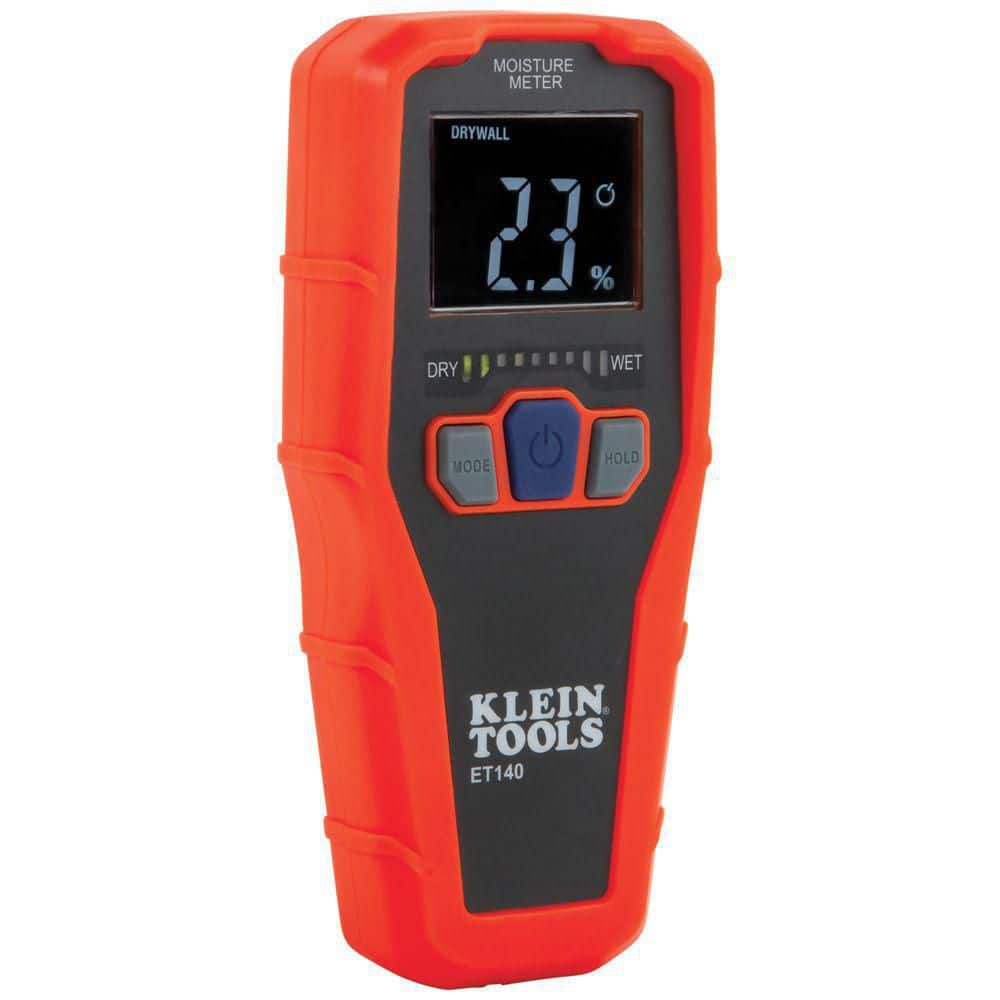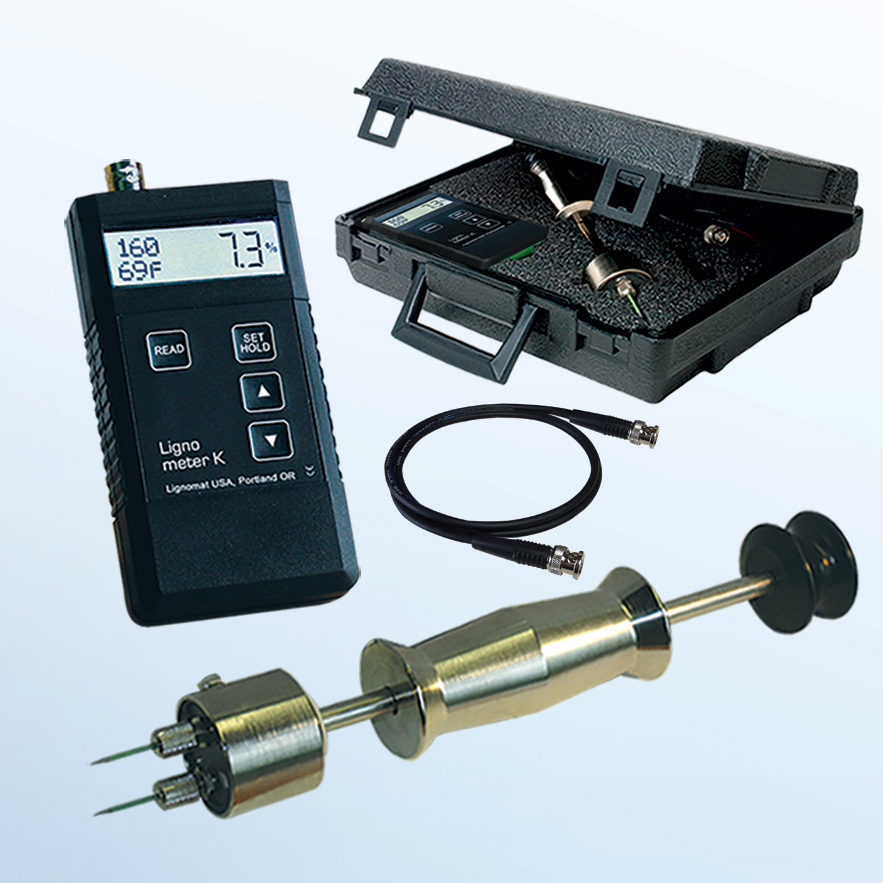Leading 10 Benefits of Using a Moisture Meter for Precise Measurements in Your Home
Leading 10 Benefits of Using a Moisture Meter for Precise Measurements in Your Home
Blog Article
The Ultimate Guide to Moisture Meters: A Comprehensive Summary and How They Can Conserve You Cash
In the realm of building upkeep, construction, and numerous sectors, the value of precisely measuring moisture degrees can not be overstated. Wetness meters work as vital devices in detecting and keeping track of moisture material in products, assisting in stopping costly problems and ensuring the quality of items. Comprehending the subtleties of different kinds of wetness meters, their applications, and the potential cost-saving advantages they provide can be a game-changer for experts and businesses alike. Finding how these tools can not only streamline procedures however also add to monetary savings is a trip worth beginning on.
Sorts Of Moisture Meters
One common type is the pin-type dampness meter, which determines the electrical resistance in between two pins inserted right into a material. Pinless wetness meters, on the other hand, use electro-magnetic sensing unit plates to scan a bigger area without triggering damage to the product's surface area.
Infrared moisture meters gauge the thermal residential or commercial properties of a product to determine its wetness web content non-invasively, making them valuable for applications where pin or pinless meters may not be ideal. Understanding the different kinds of dampness meters readily available can help markets select the most appropriate device for their details dampness dimension demands.

Advantages of Utilizing Moisture Meters

Furthermore, utilizing dampness meters can lead to increased energy efficiency. In agricultural settings, dampness meters play a crucial function in maximizing plant returns by making it possible for farmers to check dirt wetness levels and make notified irrigation decisions.
Just How to Pick the Right Moisture Meter
Selecting the appropriate wetness meter entails thinking about essential elements such as product compatibility, measurement range, and calibration accuracy. When picking a moisture meter, it's important to guarantee that the meter appropriates for the specific product you will be testing. Various products have varying electric buildings that can impact moisture readings, so picking a meter created for your material is vital for accurate outcomes. Additionally, think about the dimension variety of the moisture meter. Guarantee that the meter can detect wetness levels within the variety needed for your applications. Calibration accuracy is an additional vital variable to bear in mind (Moisture Meter). Go with a moisture meter with reliable calibration to make sure accurate and regular readings. Some meters might need periodic calibration changes, so recognizing the calibration process is essential. By meticulously examining these aspects, you can pick a wetness meter that fulfills your needs and supplies exact moisture measurements for your tasks.
Proper Methods for Moisture Meter Use
To ensure precise dampness readings and optimize the effectiveness of a wetness meter, using correct methods is essential. When using a pin-type wetness meter, place the pins or probes into the material being checked up until they make complete get in touch with. Make sure the pins are vertical to the surface area to obtain one of the most accurate analysis. For pinless dampness meters, hold the device flat versus the material and relocate slowly to cover the entire area for an average reading. It's essential to adjust the moisture meter according to the product being evaluated to improve accuracy. Take multiple readings throughout the surface area and typical them out for a much more dependable result. Additionally, ensure that the material being examined is adjusted to the environment to stop manipulated readings. Normal maintenance of the wetness meter, such as cleansing the pins or sensor, is likewise crucial to guarantee exact and constant readings. By adhering to these appropriate methods, read more users can count Full Article on their wetness meter to offer reliable wetness levels, helping in protecting against pricey damages or guaranteeing quality in different applications.

Price Cost Savings Through Moisture Meter Applications
How can the critical usage of dampness meters result in substantial cost savings throughout various markets? Dampness meters play an essential function in price savings by stopping possible damages and guaranteeing top quality control in various fields. In the agriculture market, dampness meters help in identifying the ideal time for collecting crops, avoiding over-drying or excess moisture that can impact the final item's top quality. This precise monitoring aids farmers avoid unnecessary losses and maximize their yield.

Additionally, in the food processing sector, dampness meters are crucial for monitoring item top quality and making certain conformity with security guidelines. By precisely gauging dampness web content in food items, makers can stop putridity, preserve freshness, and reduce waste, causing considerable expense savings. Overall, the strategic application of dampness meters is a useful investment that can lead to significant cost decreases and boosted effectiveness across numerous markets.
Conclusion
In conclusion, wetness meters are beneficial tools for detecting and determining wetness levels in numerous products. By using the right moisture meter and complying with correct strategies, users can successfully protect against costly damages caused by excess wetness.
Wetness meters offer as essential tools in finding and monitoring moisture content in materials, helping in preventing expensive damages and making sure the top quality of items. Infrared dampness this article meters gauge the thermal residential properties of a product to determine its wetness material non-invasively, making them helpful for applications where pin or pinless meters may not be appropriate.Moisture meters supply vital benefits in accurately examining and keeping an eye on moisture levels in diverse materials and environments. In agricultural setups, dampness meters play a crucial duty in maximizing plant yields by making it possible for farmers to monitor dirt wetness levels and make informed watering choices.In final thought, moisture meters are important devices for detecting and gauging moisture degrees in numerous materials.
Report this page